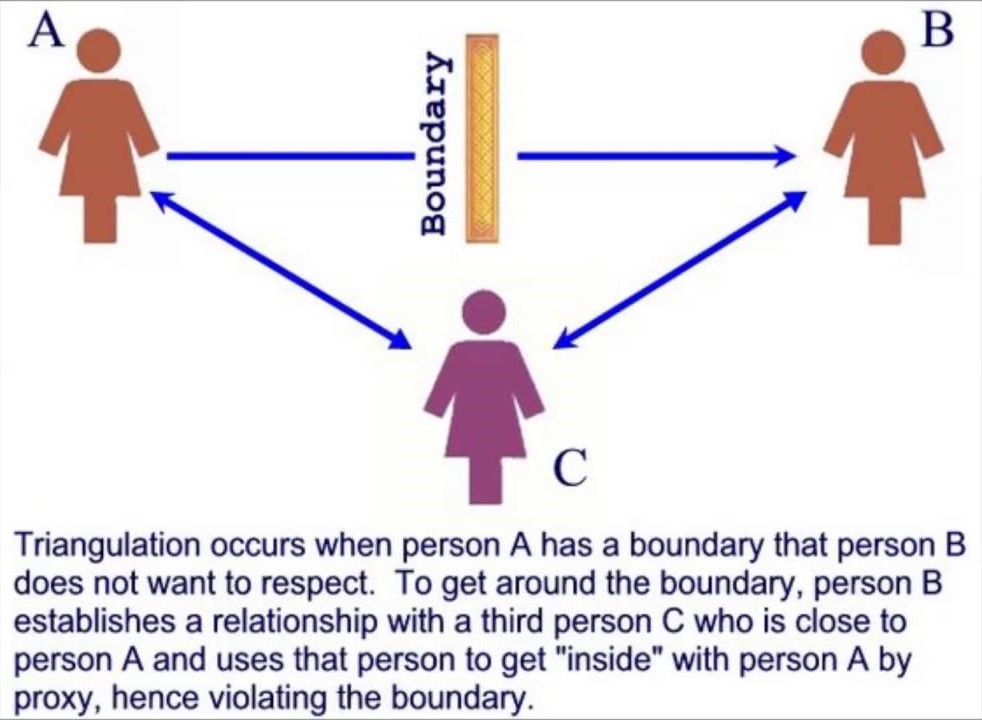April 2023

I left a religious cult a little over a year ago, the details of which I wrote about in this article. Many others left the cult throughout the year following my departure. Most left because of changes in the religious doctrine, namely the cult leader rejecting Jesus Christ as messiah after preaching salvation through Him for years. Others left due to abuse from the cult leader and his meddling in their families and personal affairs. Many of those leaving sought out other groups of the same or similar faiths. I participated in one of these groups for a short time and was shocked to see what was happening.
The group quickly began implementing many of the same toxic traits as the previous cult. What really shocked me however, was that many of the people joining the new group were completely on board with these traits, enthusiastically embracing them, even though they had caused them so much trouble in the previous group. Some of these included:
- Self-appointed leaders/teachers with no credentials
- Self-appointed counselors with no credentials
- Aggressive and vocal judging of others for not correctly following doctrine
- Leadership determining who is permitted in the group and who is not
- Condemning and shunning those who chose to leave the group
- Framing abuse of others as “love”
- Us-Versus-Them mentality towards people not in the group
- Leadership dictated/pressured group members on how to live their lives, including:
- How and where to worship
- With whom to associate
- Selection of partners
- Parenting
- Daily schedule
- Leadership determining the correct interpretation of the Bible
- Differing opinions not allowed
- Black-and-White thinking; No room for gray areas, the unknown, or personal preferences
- Slandering non-conforming members behind their backs to marginalize them
Six of the eight of Lifton’s criteria for thought control were already met here to some extent. See the original cult article for greater detail about these criteria.
- Milieu Control – attempts to isolate members from people who might present different doctrines or pull them away from the group. These were the leader’s words to one member. We warned you about having contact with people outside our group and including us in their issues.
- Demand for Purity – members must conform to the leader’s doctrines. The leader’s teachings were central to the group as the correct way to walk with God. Those who did not conform were passive-aggressively pressured.
- Confession – not quite there yet, but the group called out individuals for violations of doctrine.
- Sacred Science – the leader’s doctrines, interpretations, and teachings were considered superior to others. Whereas the previous cult leader claimed to have hidden knowledge of the Old Testament, the new leader claimed to have the knowledge of how to correctly practice biblical doctrine in every day life.
- Doctrine over Person – member’s must live their lives according to the leader’s teachings and doctrines.
- Dispensing of Existence – leader decided who could join. Some people were denied access. Other people were pressured to attend. Those who left or refused to attend were shunned.
Implementation of 6 out of 8 of the criteria for thought control shows that this group, while still in its infancy, is a high-control group. It is well on its way to becoming a cult.
The implementation of these criteria was through the standard passive-aggressive pattern of:
Suggestions → Subtle Guilting → Triangulation → Direct Guilting and Shaming → Slander and Condemnation
The group leadership would begin by suggesting how a member should think and act. If the member did not fall into line, there would be subtle guilting. Things like, I noticed you have been missing some of the teachings. If subtle guilting did not work, they would triangulate against the member, enlisting mutual acquaintances to try to pressure them into conforming. I’m worried about so-and-so. He seems to be turning his back on God. If triangulation failed, then direct guilting and shaming would begin. I can’t believe you would turn on me after all I’ve done for you. At this point, the member had to choose whether to conform or depart. Departing resulted in the former member being slandered and vilified behind his back, thereby marginalizing him as a person and ensuring remaining group members broke ties with him. These tactics are described in this article on religious narcissism.
All these things “blossomed” almost overnight into a smaller group that closely mirrored the original cult. People who had previously been hurt or marginalized by the first cult, were some of the most enthusiastic supporters. It seemed as though the only issues they had with the first cult, was that they had not been in charge of it or held elevated positions therein. They even seemed aggressive, jumping in and telling others what they were doing wrong, questioning how they lived their lives, and framing it as “loving your neighbor” by telling them the “hard truths.” It was like watching the sophomores hazing a new crop of frat boys. It began to resemble a dog pile onto whomever was deemed to be violating religious doctrine at the moment. Ironically, they would often comment about how glad they were to have left the first oppressive group, all the while implementing many of the same oppressive policies. When I brought up the cult similarities to the group leadership, I was told I was wrong and then (I discovered later) vilified and slandered behind my back. I left the group at that point. So did several others.
Why would people enthusiastically embrace another cultic group right after leaving one? I do not have a definitive answer, but I believe some of it is because of the authoritative structure religion provides. People pursing religious faith are already open to being part of such a structure and obeying the authority. The most important thing to them is that they belong to a group. They care more about being a valued member than whether abuse or control is present within the group. This presents fertile ground that lends itself to spinning up another cult in short order. The authoritative structure has a different appeal to various groups of people, and can make them coalesce into a group for at least a period of time.
- Malignant leaders – they see the authoritative structure as a means of controlling and using other people. They often initially portray themselves as warm, welcoming, caring and tolerant. However, that is just the love bombing stage before they assume control of the group or individual. Religious narcissists, con artists, and even psychopaths can fall into this category.
- People wanting to rise in spiritual stature – these people usually mean well and earnestly want to become more spiritual. The structure provides them with a tangible path to advancement, without needing to determine whether the structure is valid or good. They are sometimes used and manipulated by malignant leaders to champion causes and be their enforcers.
- Lost sheep – these people need someone to tell them what to do along every step of their spiritual walk. They do not want to think about anything, just follow. A rigid and visible structure provides them with a feeling of security that they are following something correctly. They are easy prey for cultic groups.
- Enthusiastic new believers – they have not seen enough yet to know the difference between truth and fiction. The authoritative structure can be attractive to them, especially after coming from a lukewarm, wishy-washy church. They believe they have finally found answers. Sadly, many of them turn away from God entirely after they are burned by such a group.
- Seekers – people who are looking for the truth, or at least something that works for them. The current group is simply their latest research. They have the best chance of breaking free.
Concluding this missive, I will state that this pattern of cult-hopping that I personally witnessed is both disturbing and disappointing. It seems to occur irrespective of people’s intelligence or experience. It almost appears as though these people have an innate desire to obey and be controlled. I know that is not true however, because I once stood where they stand, firmly believing that I was acting of my own free will while a narcissistic religious puppet master pulled the strings. Few, if any, people desire to be controlled. Most desire to belong and thrive. Malignant people prey upon and exploit this. Everyone has their own point at which they realize what is going on and choose not to engage in it anymore. Sadly, some never realize it and remain trapped their entire lives. It is frustrating for me, someone who has gone through this before and recognizes it, to have my warnings disregarded or even be attacked for voicing them. I have chosen to excuse myself from religious groups for this reason. The associated stress and dangers far outweigh what little effect I might have.
My standard disclaimer applies here. I am a believer and follower of the God of Israel. This writing does not represent or imply being against Him or His commandments. However, I am not a believer or follower of people who twist the Word of God to control and manipulate others towards their own desires.

















